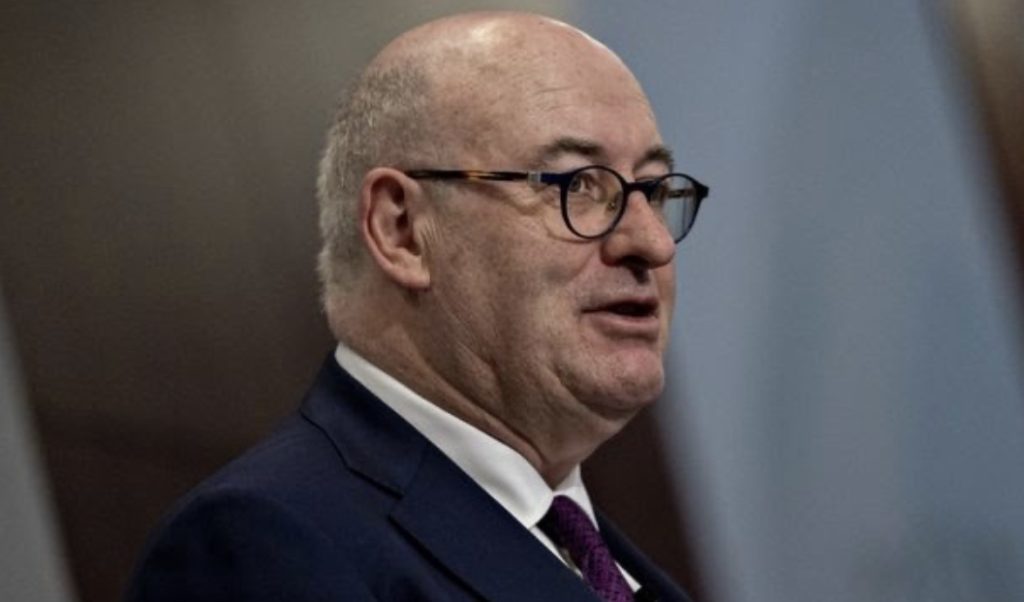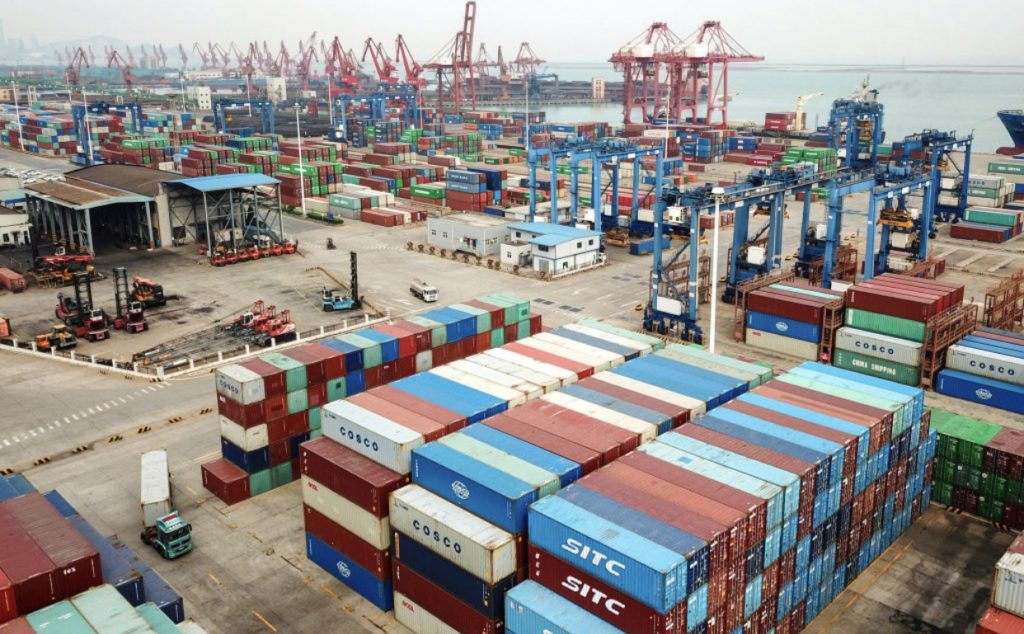Open trade will drive recovery
EU Trade Commissioner Phil Hogan, is clear: Opentrade will drive recovery. After the Covid-19/Corona virus ceises.
Hogan writes, that no country has been able to secure supply on its own: For example, the production and distribution of ventilators and Covid testing kits relies on highly integrated supply chains. A standard ventilator can contain as many as 900 pieces sourced from all over the world.

Furthermore, the vast majority of countries depend on imports of these products. Solidarity between trading partners is therefore the optimal route to exit—and ultimately recover from—this severe shock to our public and economic health.
Of course, some things should be different postcoronavirus: the weaknesses apparent in global value chains need to be addressed. Building strategic stockpiles of vital medical and protective equipment will make regions better prepared for future pandemics. Diversifying and solidifying supply chains will make our economies less vulnerable and less exposed to power politics. Strengthening international rules and beefing up our own toolbox to protect against unfair practices by others will keep the playing field level.

However, none of these sensible steps should come at the cost of closing down supply chains or limiting trade. On the contrary, an open trade policy will be an important driver for a successful economic recovery plan. For companies of all sizes to reap the benefits of trade in the recovery phase, stability and predictability will be needed in the trading environment.
The European Union is making this case forcefully at international level, most recently in the meeting of G20 trade and investment ministers, where we urged members to take the following actions to tackle the pandemic in a coordinated way:
- Remove all restrictive measures on imports, notably on the tariff side, that were introduced before the pandemic, and set a moratorium on new unilateral tariffs.
- Build on the tariff relief introduced by several G20 members, and eliminate all tariffs on Covid-19 related products.
- Refrain from the introduction of export restrictions or other distortive measures in the agri-food sector. There is no global supply shortage at this time and such measures are completely unjustified.
- Encourage all manufacturers to increase capacity for producing equipment to fight Covid-19, by making standards for medical supplies freely available to any interested company, as we did in the EU.
- Ensure that “green lanes” are open for the transport and customs controls of essential goods.
- Monitor closely the conditions for the financing of trade, given deteriorating financial and credit conditions.
When it comes to the role of trade policy and supply chains in the postcrisis economic recovery, we hope to develop a like-minded vision with our partners around a few key principles:
- No country, or even continent, can expect to secure supply on its own. To guarantee the availability and diversity of supply we therefore need resilient and integrated global supply chains.
- It is of crucial that the rules of international trade are stable, predictable and enforceable. Hence, it is critical that governments actively pursue World Trade Organization reform.
- Digital trade and the digital economy have played a critical role in this time of lockdowns and restrictions. The development of international rules, through the WTO, cannot wait any longer.
- Finally, the crisis has reinforced the importance of a vibrant, dynamic and competitive transport and logistics sectors.
We must all learn from the crisis and collectively come up with structures that equip us to respond effectively to future shocks. Transatlantic cooperation will be crucial, given that the European Union-United States trade and investment relationship remains the central artery of the world economy.
Collaboration between the world’s two largest market economies is essential for the stability of trade flows and the multilateral trading system itself. This was true before Covid-19, and it is even truer today.
Source: Barrons
You must be logged in to post a comment.